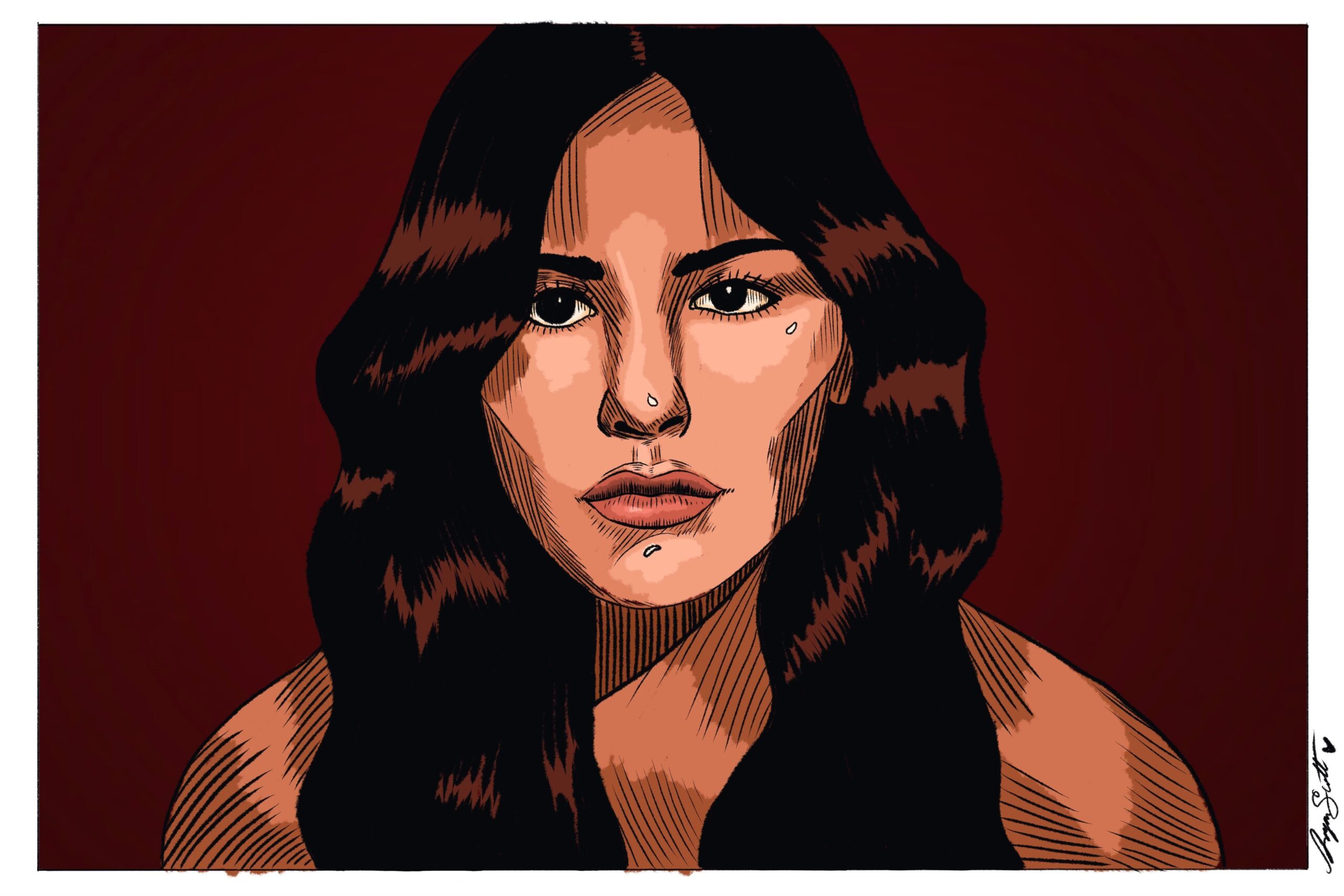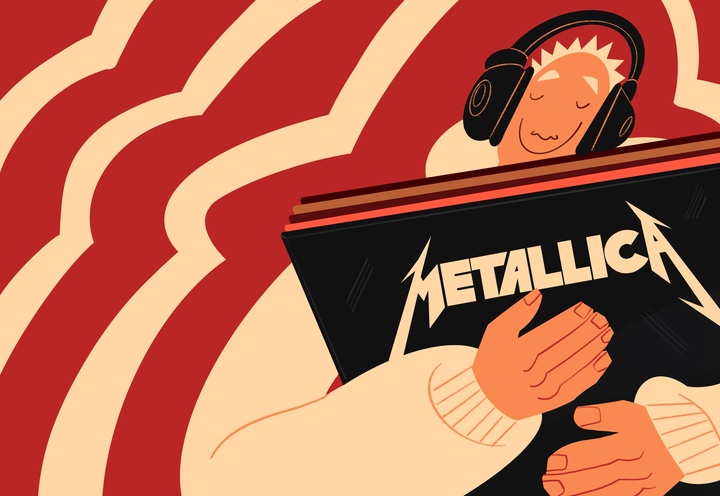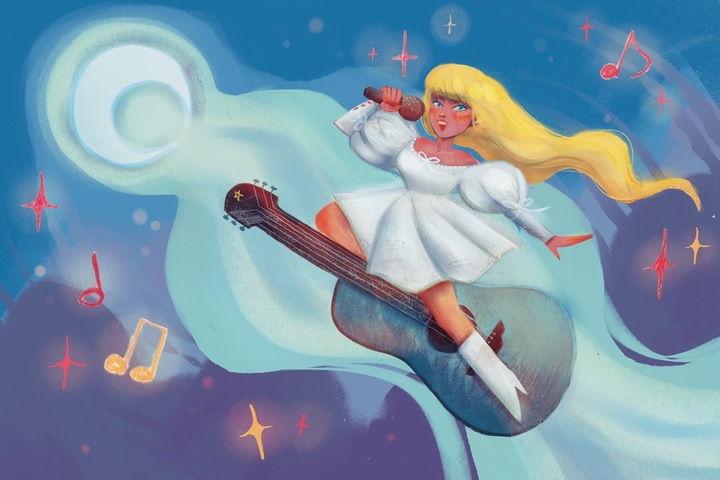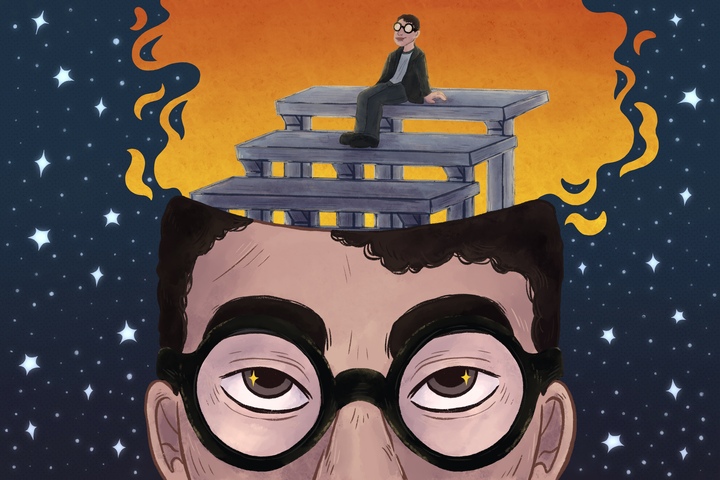Following in the footsteps of other bedroom pop artists, Gracie Abrams explores her feelings in an up close and personal way on her newest album “Good Riddance”. Her growing fanbase highly anticipated the release since the announcement of her accompanying Taylor Swift as the opening act for the Eras Tour happening this year. Her stunning lyricism paints a vivid self-portrait of Abrams’ emotions in an intimate portrayal of her experiences. I felt drawn to her work as an artist as her greatest strength shines in her poetic descriptions and relatable references to her life from break-ups to friendships to identity.
The album starts strong with “Best” as her opening track. The song has a subtle progression in the strength of her vocals and sound, thereby building a connection with the listener as we are immersed in her confessional lyrics. She admits “I never was the best to you” as a repeating mantra in the chorus. We are met with a brutally real takeaway from Abrams as she insists on taking ownership of her own faults and mistakes.
One of the most notable songs on “Good Riddance” is “I know it won’t work”, once again an inherently emotional piece evoking a longing brought upon those who have suffered through their own heartache. I absolutely adored this track and it made its way onto quite a few of my playlists. It is unmistakable that her vulnerability comes from a need to tell her truths, almost imitating a diary entry.
The layering of instrumentals in a few tracks lends itself to being difficult to interpret in some cases. That being said, it is clear that the effect Abrams is aiming for is to cloud the listeners’ minds and recreate her shared feelings of confusion in the situations she’s depicting throughout the album. On the other hand, oversimplified tracks such as “Amelie”, while maintaining her intimate nature in her music, are her weakest as they
feel repetitive and lack the compelling storytelling that stronger pieces, including “Where do we go now?” and “Will you cry?”, possess.
In my opinion, the bridges of each individual song communicate the vital message she is trying to convey to the audience. My personal favorites are “I should hate you” and “Faultline”, the two songs equally as devastating as she navigates the wreckage of post-heartbreak. “Faultline” goes as follows: “And all of my imaginary friends are scared of you / I’ve gone and cried to them in our bedroom / Most nights, I will pretend I left this sooner”. This not only appeals to our generation as dreamers, but it encompasses the isolation that comes with loss.
“Good Riddance” isn’t completely overflowing with sorrow, though, as we approach the end of the album we are met with “The blue”. A story of love and feeling understood by a partner unfolds with the delicate intertwining of her vocals and instrumentals as she details her growing affections. The budding love is conveyed as the intensity in her voice grows alongside the progression of the track.
The closer, “Right now”, comes as a strong relief of the self as she dives into her own identity and doubts. She describes how she feels “so high, but can’t look down” and her distance from her expectations. However, she comes to the inevitable conclusion that she would not be herself had she not taken steps to get there. In sum, she finishes off the album by coming to terms with her mistakes and pain in acknowledging “I feel like myself right now”.
As a whole, the album serves its purpose of being a dedication to her own emotions and intention of sharing her very real experiences for the betterment of the listener. Even going through the first listen, as a self-proclaimed lyrics person, I felt as though I was having a conversation with a friend and someone who feels in the same way I do. You learn so much about Abrams as a person and an artist. I could not give a stronger recommendation to give “Good Riddance” a lesson.
Best Tracks: “I know it won’t work”, “Right now”, “I should hate you”
Worst tracks: “Amelie”, “Difficult”



